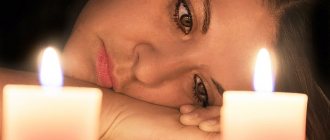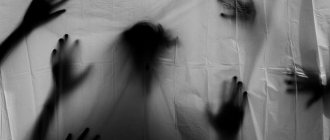Causes of strong feelings
There are no specific parameters by which increased anxiety (and the degree of this increase) is diagnosed.
It has been established that the tendency to experience excessively strong emotions can be inherited. However, more often there is a negative perception of life due to the experience of a particular individual. Upbringing, events experienced, moments seen (even from films, television programs) leave their imprint.
It happens that an increase in individual anxiety indicates the development of a mental illness, in which case specialists pay attention to the underlying cause. If there is no precipitating disorder, then the psychologist studies and treats the experiences of a particular person.
Treatments for Anxiety
The main method of treatment is psychotherapy accompanied by an experienced psychologist or psychotherapist. In some cases, simple reassurance is enough for the patient to reduce anxiety. If this does not help the person, then medications are prescribed to help restore the patient’s normal condition.
Group treatment for anxiety
The group method of combating therapy is one of the most popular. It is important to note that it has been successfully practiced for many years in the USA and Western Europe. Before taking part in such an event, many people think about how effective it is and what exactly they have to do.
Typically, group therapy based on psychoanalysis is used to treat anxiety. During classes, people actively communicate with each other and understand the experiences. A psychologist at such an event only accompanies the process and tries not to interfere with it unless absolutely necessary. The main idea of therapy is the opportunity for each person to see from the outside their own experiences, reactions to emerging events, as well as interactions with other people.
Taken together, group therapy, along with other conventional treatments, produces excellent results and long-lasting positive improvements.
Types of emotional state
Personal anxiety is an individual predisposition to strong emotional stress in situations in which other people also experience anxiety, but much less pronounced or internal, completely invisible, easily controlled. The term itself comes from personality characteristics, subjective qualities. Such a reaction to the world prevents a person from communicating normally, adapting to society, and soberly assessing himself.
Anxiety can arise in a specific situation, which for an individual turns out to be a serious stress. And throughout life, this person feels normal, only observing symptoms of increased anxiety in stressful situations.
Symptoms and signs of anxiety in adults
Among the most common symptoms are the following:
- The person remains tense all the time
- Feeling of chills and general physical malaise
- A constant test of excitement
- Panic attacks
- Lack of ability to cope with your own anxiety.
Separately, there are physical aspects that manifest themselves in the form of intense headaches, stiffness in the shoulders and muscles.
Due to constant anxiety, each person begins to experience an independent struggle with his own “I”. The most common fear is a quick death, sweating increases, and the heartbeat becomes much faster.
Age groups
Anxiety syndrome can occur in people regardless of age: both infants and the elderly are susceptible to it. Individual character traits smooth out or intensify the manifestations of anxiety.
Experiences in children
Increased anxiety in a child manifests itself in concern for various reasons. Such children are characterized by personal phobias that have a basis or are inexplicable to others. At the same time, experiences that are unusual for children may be observed: concerns about the health of parents or household chores.
At school age, these anxieties are caused by academic performance, relationships with peers, and low self-esteem. Outwardly, such children seem modest and diligent, but in fact, they may turn out to be withdrawn due to their experiences.
Characteristic symptoms of childhood anxiety may include self-harm in stressful situations, nail biting, hair twisting, and masturbation. Also, in children experiencing neurosis, certain movements (rituals) are observed that unconsciously help to temporarily relieve increased anxiety.
The reasons for this condition may be:
- individual personality characteristics;
- stress factors (including educational measures: from overprotection to sadism);
- school anxiety (since the start of school or in the process).
The last factor is especially important, since it manifests itself at the moment of conscious formation of a person’s personality. Any anxieties associated with the process of learning and communication at school can develop into pathological conditions:
- School neuroses. Unconscious anxieties are manifested by headaches, vomiting, nausea, and are often attributed to poisoning or illness, since the child cannot explain his condition.
- School phobia. An obsessive feeling of overwhelming and inexplicable fear. They do not necessarily involve any stressful situations.
- Didactogenic neurosis is a feeling of anxiety caused by the very need to attend school.
How to overcome anxiety on your own: advice from a Moscow psychologist
All people worry about something: it’s normal to worry about a crisis, coronavirus, a change of job or place of residence. But when our anxiety accumulates and turns into a restless snowball, interfering with normal life, then it is worth stopping and understanding what is happening. Family psychologist Lyudmila Tkachenko talks about what anxiety is, how to cope with it and who to turn to for help.
Anxiety in character
“Anxiety is a psychological feature of a person, which is caused by worry or a premonition of something bad,” says Lyudmila Tkachenko .
As a rule, psychologists distinguish two types of anxiety states:
- Temporary, situational anxiety. Anxiety comes and goes without leaving its mark on a person’s daily life.
- Anxiety as a character trait. In this case, the person is constantly in a tense state and reacts sharply to everything that happens in his life. The feeling of anxiety gradually develops into a disorder that interferes with life: a person may be afraid to leave the house or stop doing what he likes.
Where does anxiety come from?
The causes of situational anxiety usually lie in specific events that cause anxiety. For example, dismissal from work, change of place of residence, family problems.
The causes of constant anxiety can be physical: hormonal changes, stress, depression, and other mental disorders.
Sometimes anxiety “comes from childhood”: if the child has witnessed parents’ anxiety with or without reason. For example, adults could be very worried about little things, escalate, make a mountain out of a mountain - and the child recorded this pattern of behavior.
“An unfavorable environment in the family, among friends and peers can also trigger the development of anxiety. Children become excessively whiny, have problems sleeping, find it difficult to establish new social connections, and begin to study worse,” notes the psychologist .
Anxiety manifests itself in different ways:
- the feeling of anxiety is mixed with irritation, concentration decreases, heart rate increases, a “lump” appears in the throat;
- Some people experience increased sweating, nausea or itchy skin;
- At first there is a feeling of slight discomfort, which soon develops into real panic.
FOUR SIMPLE STEPS TO VICTORY
If you feel your anxiety getting worse, try a few simple steps.
Focus on your breathing . Take a deep breath and exhale. Then inhale through your nose, counting to 4, and hold your breath, continuing to count to 7. On the count of 8, exhale slowly. Repeat the exercise several times.
Play soothing music. The music can be anything: classical, for meditation, sounds of nature - the main thing is to make you feel calmer.
Start doing something with your hands. Clear your desk, draw, start knitting a scarf, wash the dishes... Focus on any active activity, don't sit.
Take a break from what's bothering you. If you start to feel anxious from watching the news, turn off the TV, turn on a nice movie or video, and read. You need to occupy your head with something else.
“These steps will help you quickly calm down in a specific situation, but you should understand that they will not get rid of the problem completely - you need to reconsider your lifestyle,” emphasizes Lyudmila . - “Give up coffee, energy drinks, adjust your sleep schedule, “filter” your environment, movies, music, watching the news, start playing sports.”
How to recognize an anxiety disorder
“When the state of anxiety lasts more than 6 months and is accompanied by physical symptoms, then we can talk about an anxiety disorder that will not go away on its own. In this case, the help of a psychologist or psychotherapist is required,” the specialist notes.
There are several types of anxiety disorder, and each has a different set of typical manifestations:
- Social phobia. A person avoids contact with other people and reacts sharply to how others treat him.
- Generalized anxiety disorder. This is a constant and acute feeling of anxiety and worry about minor reasons - for example, if a loved one is late at work. As a rule, anxiety is accompanied by physical symptoms: heart pain, “cold sweat,” trembling.
- Anxiety related to health status. This disorder can occur in people with chronic diseases. For example, asthma sufferers often fear choking or losing their inhaler.
- Various phobias. This may include the fear of flying, the fear of closed spaces that limit a person’s movement.
- Panic attacks. They are most often accompanied by rapid heartbeat, shortness of breath, and dizziness.
“All these symptoms require contacting a specialist, and under no circumstances should this be postponed until later,” says Lyudmila . “Anxiety can lead to sleep disturbances, loss of social connections, digestive disorders and heart disease.”
On a note
If anxiety does not go away, it is best to make an appointment with a psychologist or psychotherapist. They will help you understand the causes of your anxiety and get out of the crisis.
To get free psychological help, use the “Social Navigator” - a map of all city institutions that provide social services to Muscovites. Go to the “Psychological Assistance” section, select a suitable organization and make an appointment with a specialist.
If you need psychological help right now, then call 24-hour number 051 - emergency psychological assistance specialists will listen, give a free consultation and tell you what to do. For calls from a mobile phone, dial +7 (495) 051.
Source
Press service of the Department of Labor and Social Protection of the Population of Moscow
Manifestations in adulthood
Conscious people who lead independent lives are not very attentive to their own experiences. At the same time, increased anxiety in adults is a common phenomenon, often caused by certain factors:
- age-related changes (for example, the onset of menopause in women);
- stress, unusual situation;
- certain working conditions associated with constant tension and lack of proper rest;
- breakups, quarrels, losses and other factors that cause feelings.
Treatment of anxiety
To get rid of an obsessive state, psychologists and psychotherapists use a treatment complex consisting of consultations and, if necessary, the use of medications. Treatment development is carried out on a purely individual basis and depending on the type of anxiety disorder.
When the condition worsens, medications are prescribed. Depending on the symptoms manifested, several groups of tablets can be distinguished:
- Psychotropic substances - tranquilizers. Help relieve panic and constant feelings of tension. You can also get rid of suicidal intentions, as well as reduce aggressive behavior
- Antidepressants. Restores a stable emotional background, eliminates possible anxiety states and exacerbations
- Neuroleptics. This is relevant if the patient is in an inadequate condition. The effects of drugs are carried out on certain areas of the brain, which help to control the situation and show rationality in thinking.
- Sedatives. They have a calming effect, help reduce nervous tension, normalize sleep, and reduce the level of excitability.
- Nootropics help maintain the patient’s performance at the proper level, and also promote normal blood circulation
- Beta and alpha blockers. They help deactivate the receptors that perceive adrenaline. Helps improve the functioning of the autonomic nervous system.
Psychotherapy is an integral part of treatment. To do this, psychotherapists use various techniques, depending on the complexity of the disease and its progression. For treatment, hypnosis is used as an auxiliary method.
Treatment of anxiety in adults
The treatment program is developed individually, depending on the patient’s condition. So, for example, for some people it is enough to carry out persuasion techniques, as a result of which their condition significantly improves, but in advanced situations it is simply impossible to do without the use of medications.
Rational type beliefs often involve the use of psychotherapeutic techniques. In addition, the specialist constantly accompanies the patient, and also teaches how to cope with emerging exacerbations and interact normally with other members of society.
As with an anxious depressive state, many patients may be prescribed antidepressants, antipsychotics, and nootropics.
It is important to note that the patient’s work on his own condition is no less important. You can do breathing exercises or yoga, and walk in the fresh air as much as possible. It is not recommended to abuse alcohol or smoke cigarettes, as this reduces the effectiveness of treatment.
Anxiety in children
Psychologists and psychotherapists work with children at any stage of anxiety development. However, often one or both parents are included in the process to help improve and speed up the restoration of the child’s normal condition. And although an individual treatment plan is developed for each child, the general scheme is as follows:
- Psychotherapy. Typically, cognitive behavioral therapy is used to work. As a result, the child must learn to cope with assigned tasks and stressful conditions.
- Family psychotherapy. To eliminate the anxious state as quickly as possible, not only individual techniques are used, but also work with entire families and proper monitoring of the condition by a psychologist or psychotherapist. If there are difficulties in contact between family members
- The use of medications is possible only if the child cannot cope with anxiety even with the support of a psychotherapist. As a rule, anxiolytics are extremely rarely used under the age of 18 years.
Treatment of anxiety during menopause
Menopause is a transitional state of the female body as a result of hormonal changes. As a result, not only pathological changes in the functioning of the body, but also in the emotional state can be observed. The most well-known and popular method is hormone replacement therapy (HRT). However, its use is possible only if you have first consulted with a specialist.
Non-hormonal drugs are also often used to help overcome depression and reduce anxiety. Also one of the popular types of treatment is the use of SSRIs. But the drug often causes a decrease in libido. If side symptoms are diagnosed, then bupropion or duloxetine can be used as a replacement.











